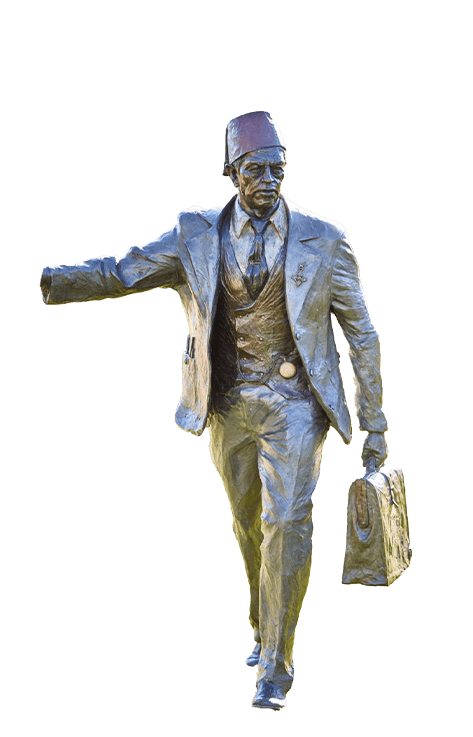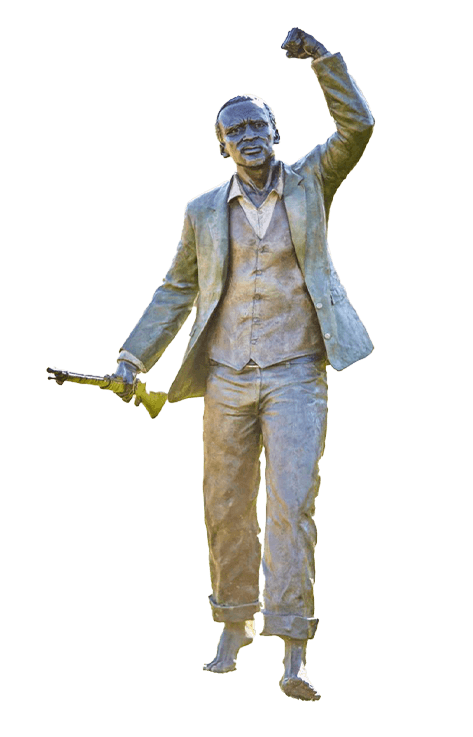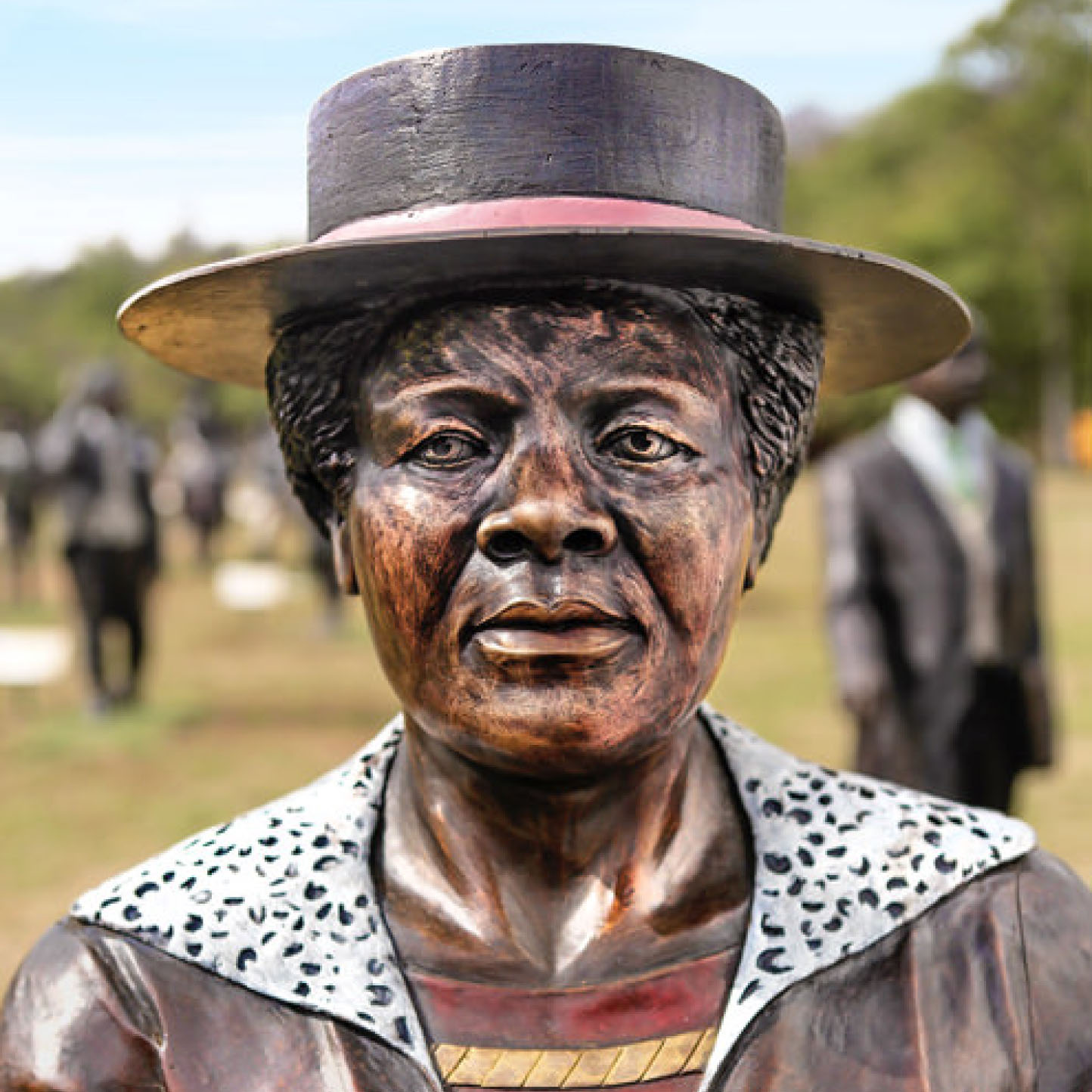
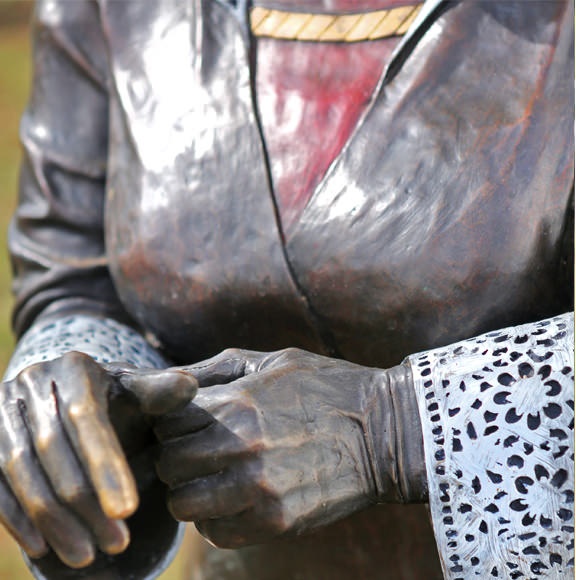
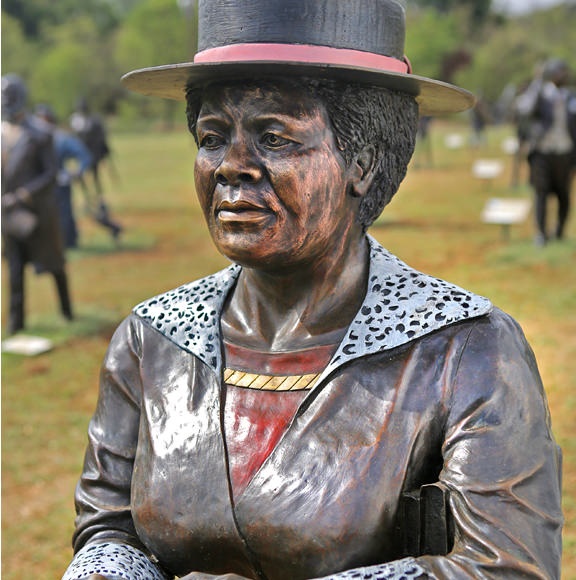
"This work is not for yourselves, kill that spirit of self and do not live above your people, but live with them. If you can rise, bring someone with you."
Charlotte Maxeke
Charlotte Manye Maxeke
1874 – 1939
First African woman from South Africa to receive a university degree, Founder and first President of the Bantu Women's League, President of the National Council of African Women
Charlotte was born Manye, the eldest of six children near Fort Beaufort in the Eastern Cape. She received a missionary education at the Edwards Memorial School in Port Elizabeth in the early 1880s and in her early teens moved to Kimberley when her family settled in that town in 1885 following the growth of the diamond mining industry.
As a dedicated churchgoer, Manye and her sister Katie joined the African Jubilee Choir in 1891 and toured England for two years. During this tour, she performed for Queen Victoria, both in traditional dress and, following a costume change, in the English fashion of the day. While in London, the two sisters heard the speeches of British suffragettes, including the leader of the movement, Emmeline Pankhurst, who demanded the full franchise for women.
Hoping to pursue her education, Charlotte Manye agreed to go on a second tour to the United States. In 1894, when the tour collapsed in Cleveland, Ohio, an African- American church, the African Methodist Episcopal Church, took Manye and five other black South Africans under its wing and enrolled them at Wilberforce University. The education received by Manye and her future husband, Marshall Maxeke, who had come to Wilberforce in 1896, concentrated heavily on their future as missionaries to Africa and included being tutored by the leading African-American intellectual, W.E.B. Du Bois.
Charlotte successfully completed a Bachelor of Science degree in 1901, the first African woman in South Africa ever to receive a university degree.
Charlotte and Marshall Maxeke became engaged before she returned to South Africa in 1901. She travelled far north to join her family, now settled in Dwaars River under Chief Ramakgopa, and set up a school on land donated by the chief.
Together the Maxekes started several other schools at Evaton, Klerksdorp and Boksburg, all near Johannesburg. Most notably the school in Evaton was founded as the Wilberforce Institute and by the 1920s boasted primary, secondary and teacher training departments and an informal training programme for Ministers.
Charlotte Maxeke became the most prominent female activist of her day. She organized the anti-pass movement in Bloemfontein in 1913 and would continue to mobilise against the carrying of passes by women and the pass laws. Even though women were not allowed to join as full member, she was present at the founding conference of the South African Native National Congress (SANNC) in 1912. She strongly resented this discrimination and when the new SANNC Constitution of 1919 excluded women members she founded the Bantu Women's League and became its first president. In 1948 it became the ANC Women's League.
In 1922 the Native Affairs Department created a post for her as native welfare officer. This lasted until 1930, after which Maxeke remained unemployed until 1935, when she became matron of a girls hostel at the Wilberforce Institute. Always supporting a large household of orphans and other destitute people, she survived on financial assistance from friends.
In 1937 a new National Council of African women brought together professional African women from throughout South Africa and elected Charlotte Maxeke president. She died two years later, aged 65.
At the All African Convention held in 1935 to defend the Cape African vote, Dr Alfred Bitini Xuma, later to become president general of the ANC, praised the life of Charlotte Maxeke, calling her the Mother of African Freedom in honour of her commitment to the women in South Africa.
